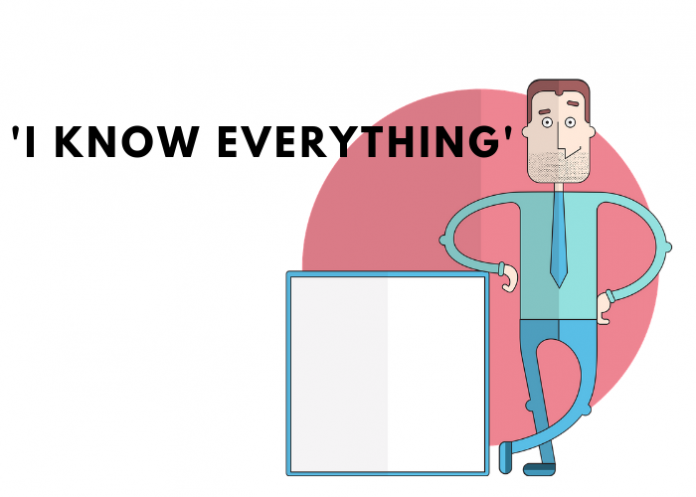A friend recently called to vent her bottled emotions. She was fed up of a colleague at work, who could not stop bragging. The man in question was newer than most others in the organisation, but walked around with a smirk and a ‘know all’ attitude, boasting about knowing everyone and everything. Who are these braggarts? What do they look like? How exactly do they brag? These ‘all talk and no walk’ employees manage to annoyingly divert all attention to themselves at meetings, coffee breaks, lunches and parties. They dominate every conversation and digress from a context as per their preference and as and when they fancy.
This naturally leaves other employees frustrated and demoralised, as they do not know how to deal with such people, within the rigid organisational structure and communication network. Such people and their behaviour tend to have a negative outcome on employees’ performance. The emotionally-challenged employees may end up becoming soft targets for such braggarts.
They may get so carried away by the bragging that their own performance may drop and their personal lives may also get impacted because of the resultant stress. Employees become braggers because of psychological insecurities that they develop while growing up. They may brag to just cover up skill gaps at work or bragging may simply be a bad habit that they have developed unknowingly. In a workplace, it takes many forms and exists in levels ranging from mild to extreme. Some employees brag to demonstrate their popularity within and outside a company.
For instance, they claim that they know the top bosses and often meet them outside work to wine and dine. This can intimidate the weak souls and demoralise them. Employees also brag to create a hype around an event/task or experience they fancy. They overstate their achievements and lie at the drop of a hat to boost their egos. To show their self-importance, they create imaginative experiences which are sugarcoated and thrown at colleagues in the form of poisonous gas bombs. Social media has boosted braggarts and put them on a pedestal.
After all, we do live in “braggadocious times”, as mentioned by Donald Trump in his speech. It is true that in this era of social media and smartphones, everyone at some point or the other has indulged in displaying selfies and sharing stories about their expeditions, vacations and ventures. That means, we have all bragged at some point or the other. But when the intention is to assert fake superiority and make others feel useless, it needs to be nipped in the bud, especially in the corporate world.
Value our content... contribute towards our growth. Even a small contribution a month would be of great help for us.
Since eight years, we have been serving the industry through daily news and stories. Our content is free for all and we plan to keep it that way.
Support HRKatha. Pay Here (All it takes is a minute)



































![How [24]7.ai’s progressive initiatives ensure a gender-inclusive workplace](https://www.hrkatha.com/wp-content/uploads/2023/08/247.ai-office-100x70.png)
